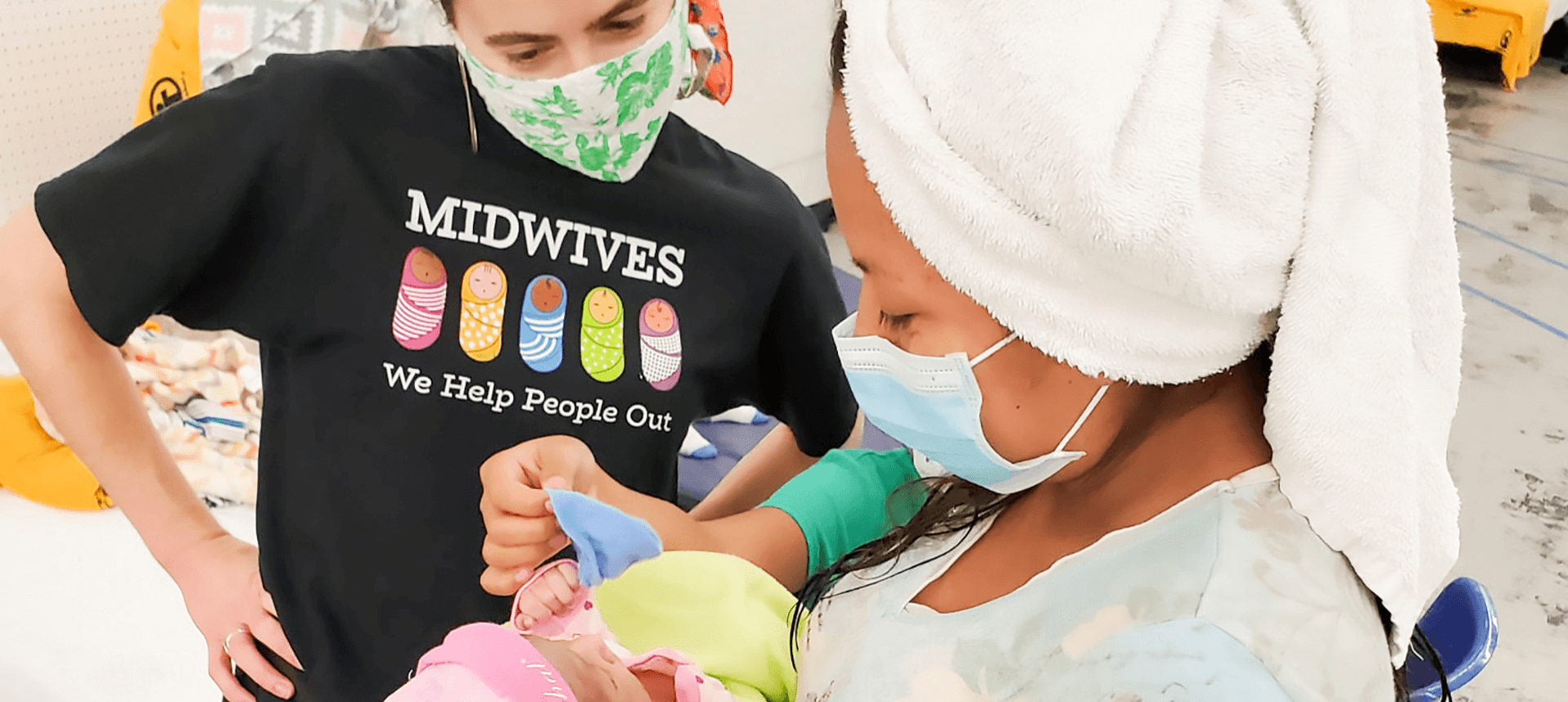
Health Network, Migrant Clinicians Network’s virtual case management program, seeks to assist migrants, immigrants, and asylum seekers to navigate the complex US health care system while they are migrating, by providing: records transfer to new clinics; support in enrollment in programs for which they are eligible like sliding scale fees; and connection to services they need to ensure continuity of care, like linkages with local community-based organizations to arrange for transportation to a clinic.
Every year, Health Network serves hundreds of pregnant asylum seekers after they have been released from detention, and as they travel to their receiving communities to await their immigration hearing. Many prenatal patients, however, are turned away from community health centers, even with a case manager advocating for them. Some rejecting clinics express concern that these patients are in their third trimesters and have had limited to no previous prenatal care. Some clinics, however, recognize the critical need that they can fill, in alignment with the health center program mission, by accepting a pregnant asylum seeker. In these cases, finding needed prenatal care is a streamlined process for our case managers and the prenatal patients enrolled in our program.
Health Network Associate Joshi Covarrubias encountered one of these uniquely smooth cases recently. A woman named Mariana* arrived twelve weeks pregnant at a respite center in McAllen, Texas. After a long journey from Central America, she crossed the US-Mexico border and asked for asylum. After processing at a detention facility, she was released to the respite center, where she could recuperate for a day, have a hot meal, and shower, and receive assistance in coordinating her journey to her final destination within the US. At this respite center, a small medical staff triages asylum seekers to ensure they are healthy enough for their journeys. Those who require non-urgent care are enrolled in Health Network to assist them in finding a clinic at their next destination, along with any other services they need to ensure they can access care.
Mariana was enrolled in Health Network so she could find prenatal care in her new town. Shortly after enrollment, she got in contact with family she had in the Mid-Atlantic region that was waiting for her, and they were reunited in a short time. She did not have a job waiting for her here in the US and lacked a cell phone, but her brother was able to provide for her immediate needs and act as a point of contact for Covarrubias.
The state she is now living in is one that has consistently rejected prenatal patients, making the work of Health Network Associates handling cases in that area an ongoing struggle, with hours spent on the phone, calling multiple clinics and health centers in order to provide the patient with basic prenatal care. This case was different.
The very first call Covarrubias made resulted in a promising start. “They scheduled an appointment with their financial department to have a phone conversation with her about her finances and try to set up this financial program for her,” he said. “They were able to contact her literally the day after I spoke with them.”
It took only 17 days from her enrollment in the Health Network program before she was seeing a clinician for her first prenatal appointment at a price point that she could afford.
Cases this straightforward are few and far between. In less than three weeks, Mariana was given the opportunity to enter the country as an asylum seeker, enroll in our program, reunite with her family on the East Coast, and finally, see a doctor. Her prenatal care and the associated screenings and treatment will lower the risk of a low birth weight and preterm birth, along with the risk of fetal demise and neonatal death. Because of her relationship with the health center, Mariana can avoid using emergency services when she goes in labor, which would have unforeseen strain on an already-overloaded health care system. When Health Network Associates advocate for better health systems for pregnant asylum seekers, they want to see this level of simplicity for all of those who come to Health Network for help.
Read Migrant Clinicians Network’s white paper, “Failures of the US Health Care System for Pregnant Asylum Seekers,” in English and Spanish, on MCN’s website: https://www.migrantclinician.org/resource/failures-us-health-care-system-pregnant-asylum-seekers-white-paper
Read this article in the Winter 2023 issue of Streamline here!Sign up for our eNewsletter to receive bimonthly news from MCN, including announcements of the next Streamline. |